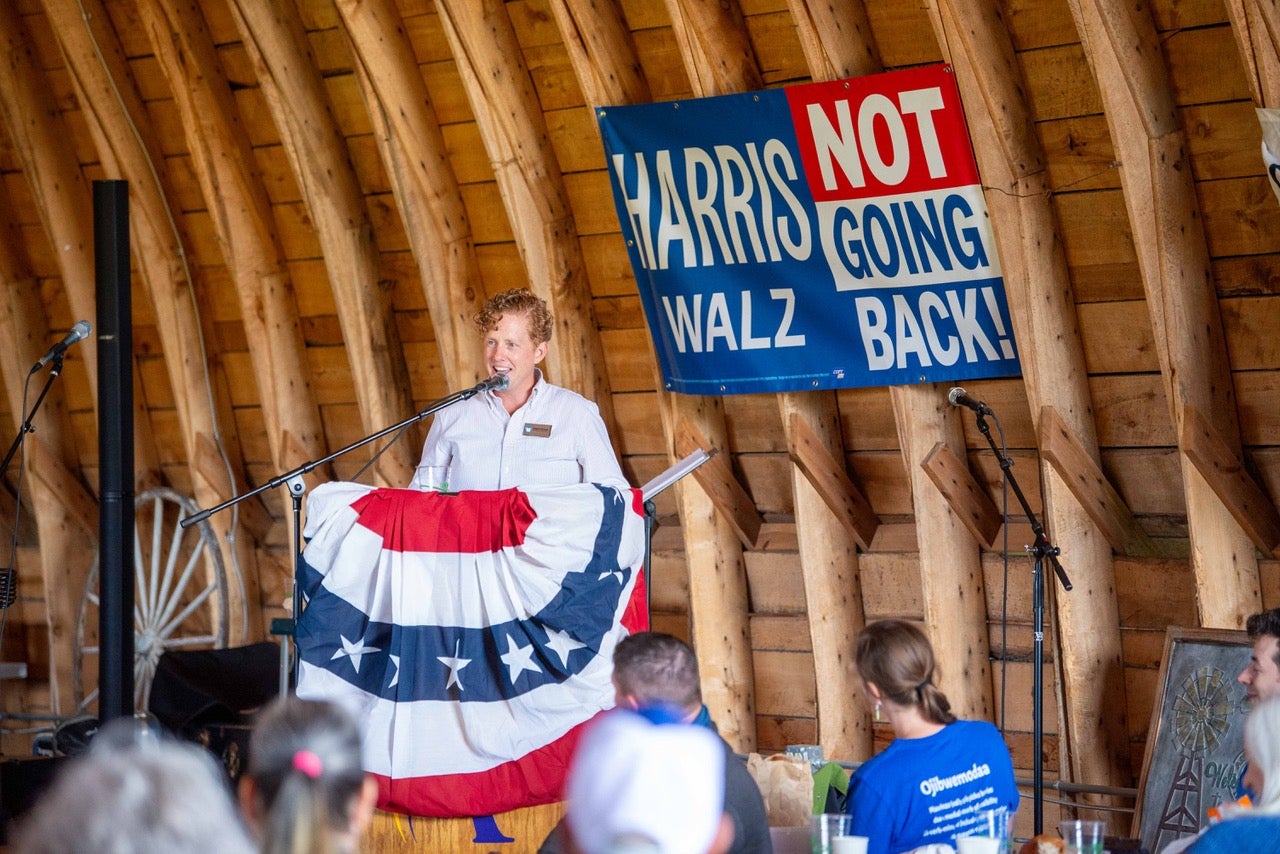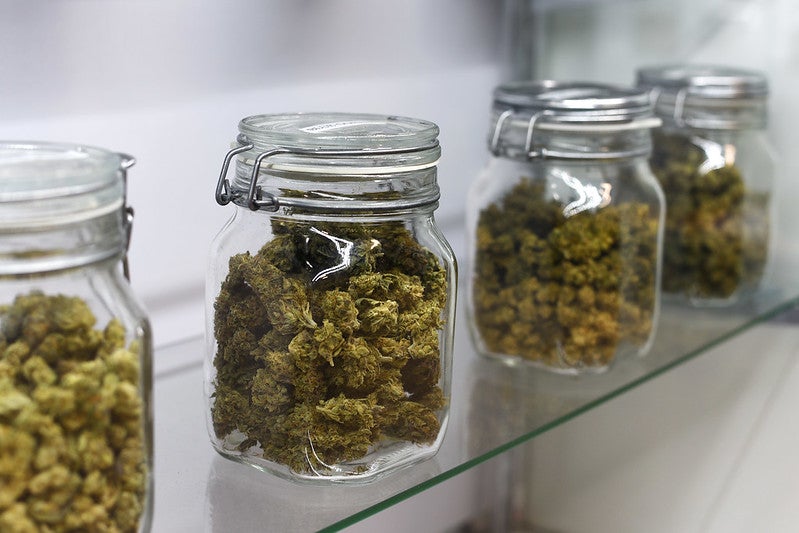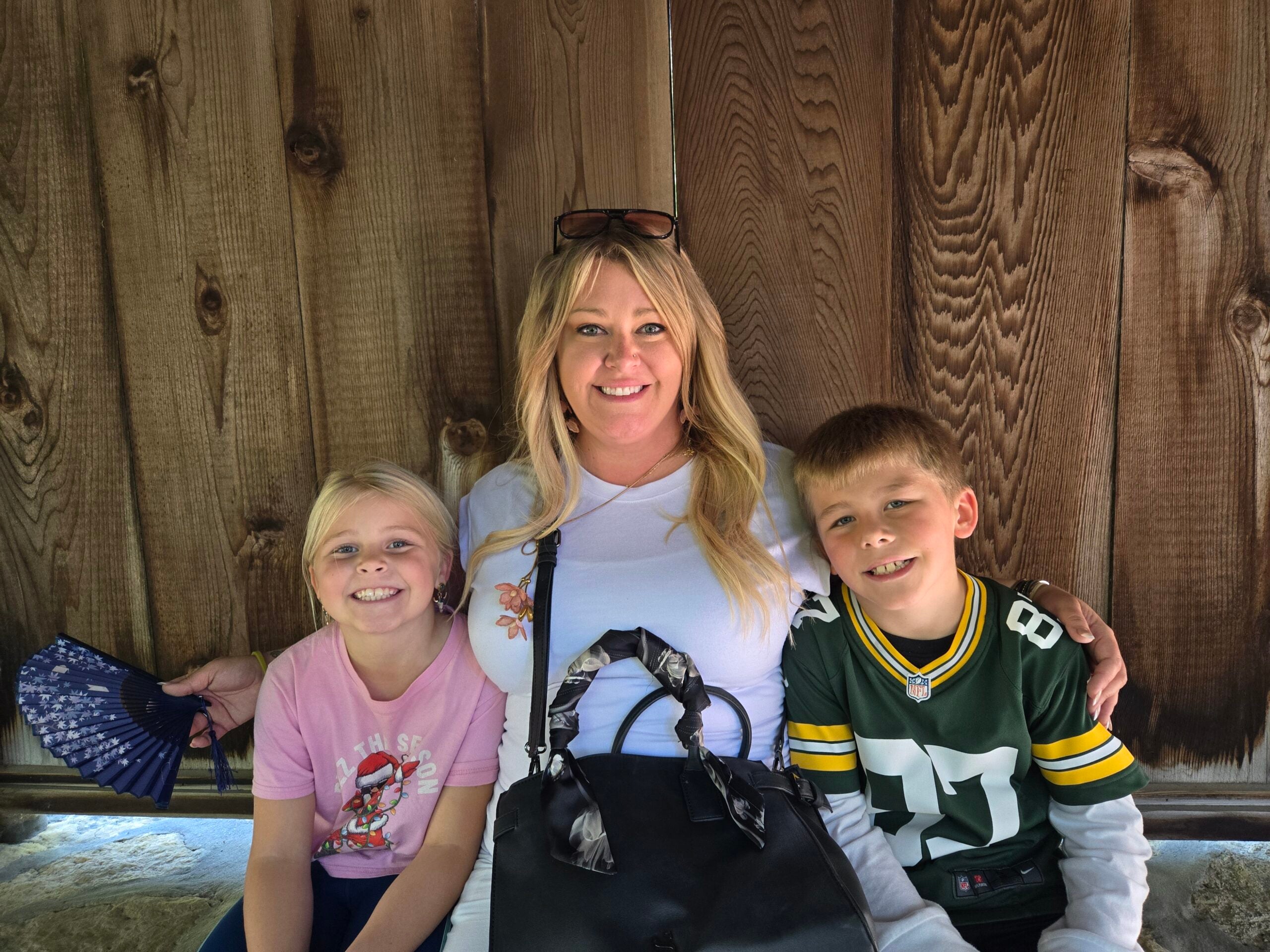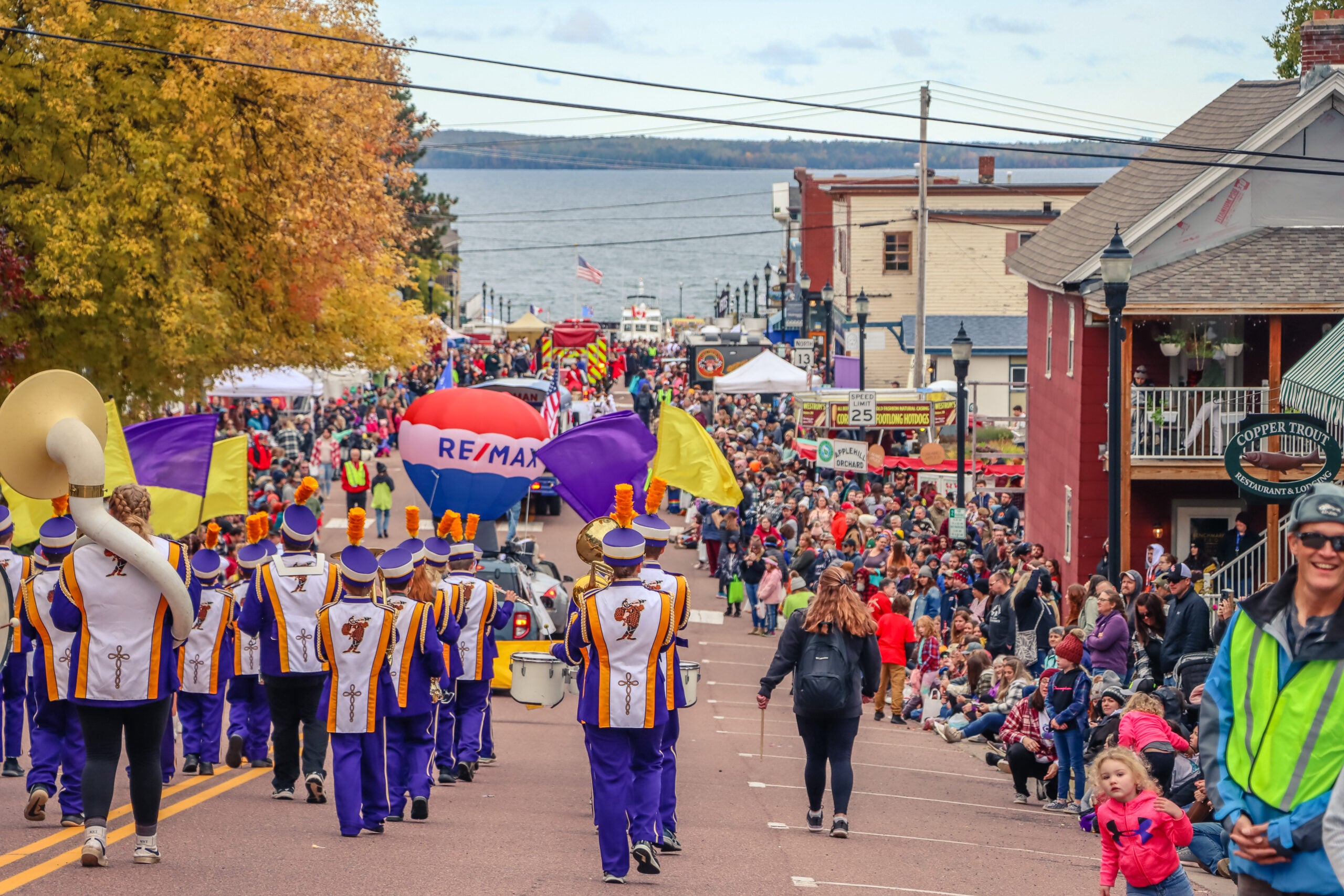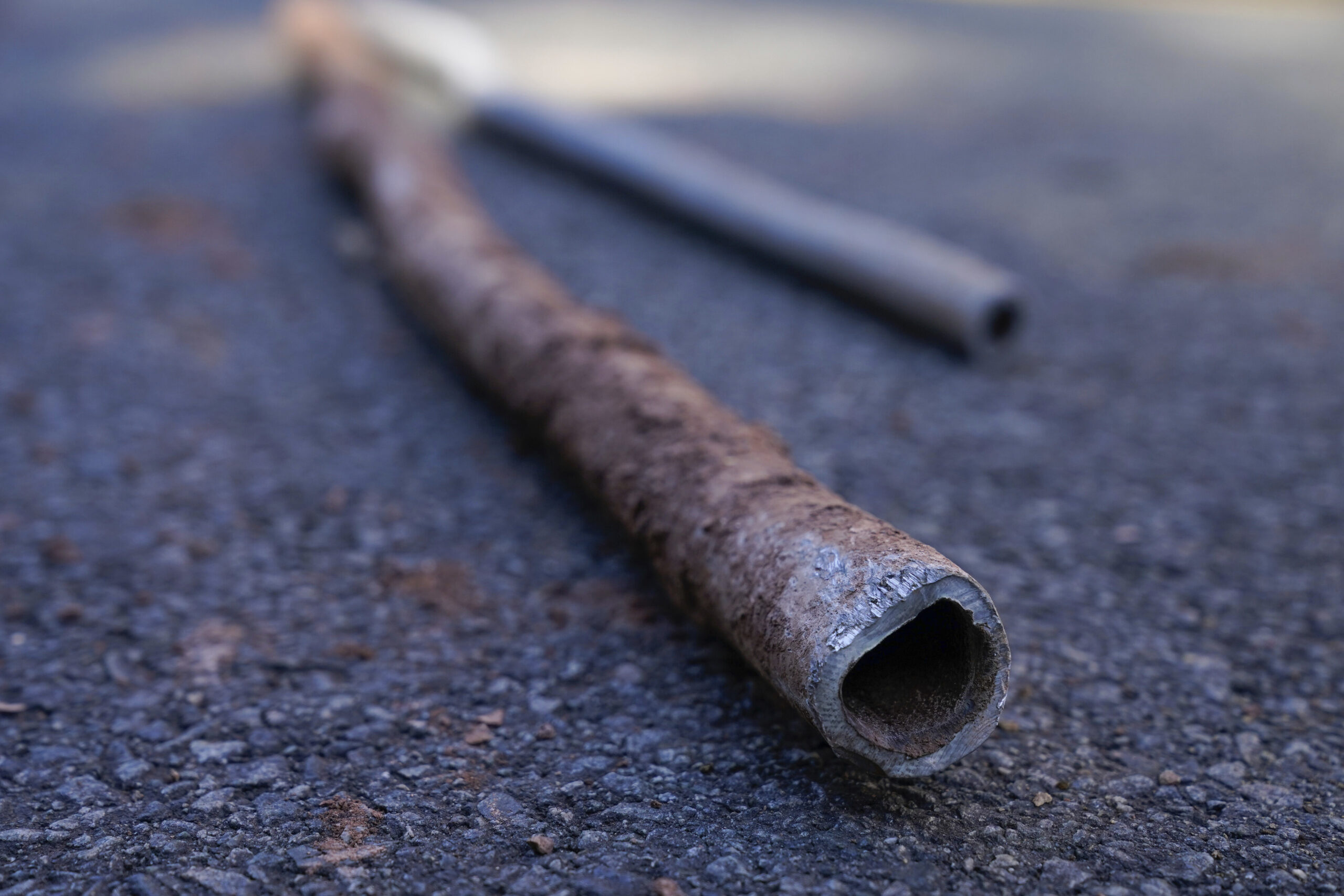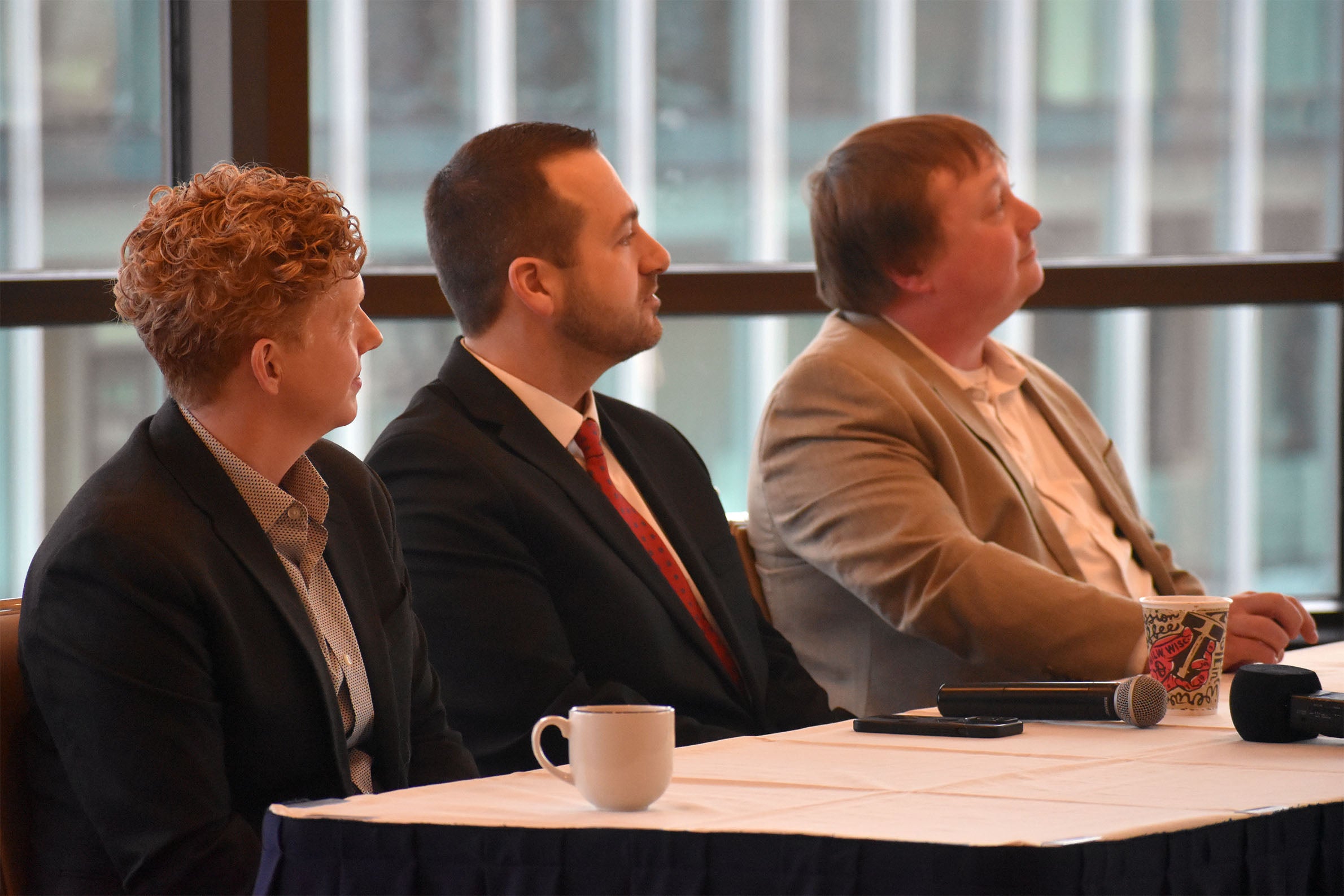Angela Stroud stresses protecting Lake Superior and other environmental issues in her campaign as the Democratic candidate for Wisconsin’s 73rd Assembly seat.
A professor at Northland College in Ashland since 2012, she is voluntarily leaving the position effective at the end of this academic year in the face of the school’s financial difficulties.
Stroud is running against Republican Frank Kostka for the seat left open by current Rep. Angie Sapik of Lake Nebagamon, a Republican who won the office in 2022.
News with a little more humanity
WPR’s “Wisconsin Today” newsletter keeps you connected to the state you love without feeling overwhelmed. No paywall. No agenda. No corporate filter.
Stroud grew up in South Texas, ten miles from the Mexican border, which she would cross frequently with her family to go shopping or dining. She earned her bachelor’s degree at Southwestern University in Texas and her masters and Ph.D. at the University of Texas at Austin, all in Sociology. She lives just outside of Ashland in the Town of Gingles with her partner, Cynthia Belmont, and her stepson, a 2024 graduate of Ashland High School.
The 73rd District comprises the greater Superior and Douglas County area and had been reliably Democratic for years. That began to erode after redistricting in 2011 by a Republican-dominated Legislature. After flipping to the GOP with the election of Sapik, it’s been redrawn again. It now runs from Superior east to Bayfield and Ashland, which are predominantly Democratic areas.
Stroud spoke with WPR’s Robin Washington on “Morning Edition” about her candidacy.
This interview has been edited for clarity and brevity.
Robin Washington: What’s the biggest single issue in our area and how can the Legislature address it?
Angela Stroud: The No. 1 issue of my campaign is protecting Lake Superior. If those of us who live here and love the lake don’t protect it, no one else is going to.
There are multiple threats to the lake, but one we could focus on is PFAS chemicals. These are forever chemicals that get into our water supply, and as is suggested by the name, they live forever. They bioaccumulate in fish. They also bioaccumulate in our own bodies. And we have to strictly regulate them to ensure that we’re not actually poisoning ourselves and our environment.
There was legislation introduced last year by Democrats. It died because Republicans refused to give it a fair hearing. There’s no reason this issue should be partisan. Everybody wants clean water. Nobody wants toxins that are accumulating in their bodies. And so one of the top priorities for Democrats next year is going to be reintroducing this PFAS legislation and ensuring that we’re protecting ourselves and protecting our incredible water.
RW: Enbridge’s proposed Line 5 pipeline project has divided the region. Do you see any realistic compromise here? Or is this simply build it or not?
AS: Compromise is an interesting question here. We’re talking about a piece of infrastructure that is existing in ceded territory, and too often we fail to recognize that tribal sovereignty is really the key issue here.
Line 5 is running through the Bad River Reservation. That’s part of the district, the 73rd, and Enbridge is trespassing. Bad River is an autonomous government. They have sovereignty over their own decisions. But the entire pipeline exists in ceded territory, and the treaties that our government signed require that we allow them to maintain their rights to hunt, fish and gather. This pipeline is a risk to the lake, and it’s a risk to treaty rights. It’s a moral and legal obligation that we live up to those promises.
RW: You’re familiar with the immigration issue, having grown up right at the southern border. How does it affect our area, or does it significantly — even though we’re near an international border of our own?
AS: Immigration affects all states because all states rely on immigrant labor, and especially agricultural states like Wisconsin. So absolutely, we see immigrants in our communities doing all kinds of jobs. That said, we have to have a safe and secure border.
Immigration has changed a lot since I was a kid. It used to be mostly people from Mexico coming to work who would go back and forth across the Mexican border. But now because of sociopolitical forces in Venezuela and Haiti and all over the world, we’re seeing a totally different situation.
We have to have a secure border, but we also have to acknowledge that we rely on immigrant labor all throughout our economy, particularly in the agricultural sector. It’s difficult, but it’s not impossible to strike that balance.
RW: Is there any Republican-backed initiative in the Legislature that you can get behind? This is keeping in mind that we don’t know which party will be in control in the next term.
AS: I’m very open to the idea of getting behind Republican ideas. I’m not one who says a good idea is any that a Democrat proposes and a bad idea is anything that Republicans propose.
We need to propose ideas that actually solve the problems that Wisconsinites are facing. Our Legislature has, over the last few sessions, been the least effective Legislature in the country. We need to vote for people who are committed to getting results, no matter if they’re Democrats or Republicans.
I’ll work with anybody who has good ideas.

